Publications
Articles, publications, books, tools and multimedia features from the U.S. Institute of Peace provide the latest news, analysis, research findings, practitioner guides and reports, all related to the conflict zones and issues that are at the center of the Institute’s work to prevent and reduce violent conflict.
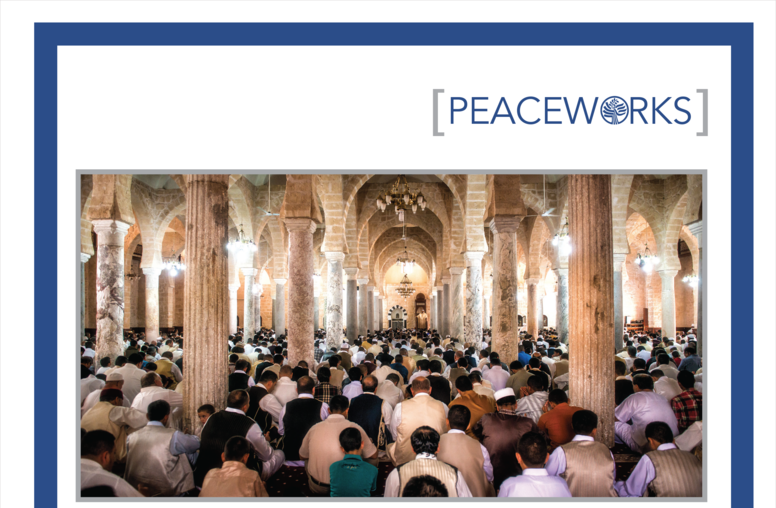
Libya’s Religious Sector and Peacebuilding Efforts
Derived from two surveys conducted in Libya in 2014 and 2016, this report strives to heighten understanding of the country’s religious sector and its impact on governance and society. The findings—which are bolstered by the local knowledge of Libyan researchers—map the major religious trends, institutions, and actors in the country to describe how Libyans perceive the contribution of the religious sector to building peace and fostering justice and democracy.
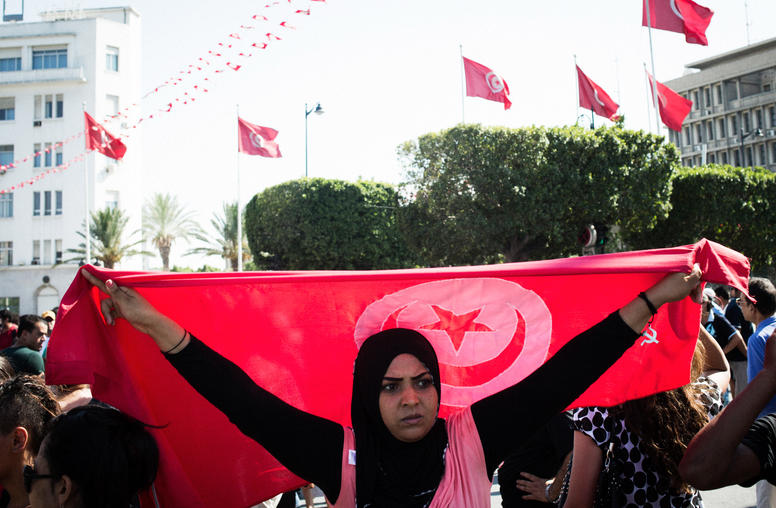
Aid Remains Key to a Counter-ISIS Plan, Tunisia Says
As the Trump administration prepares an international conference to shape strategy against ISIS, the plan should include economic aid to undercut extremist recruitment, Tunisia’s foreign minister said March 14. Financial help is essential to help nations at risk, such as Tunisia, offer jobs and futures for unemployed, disillusioned youth, Foreign Minister Khemaies Jhinaoui told an audience at USIP.
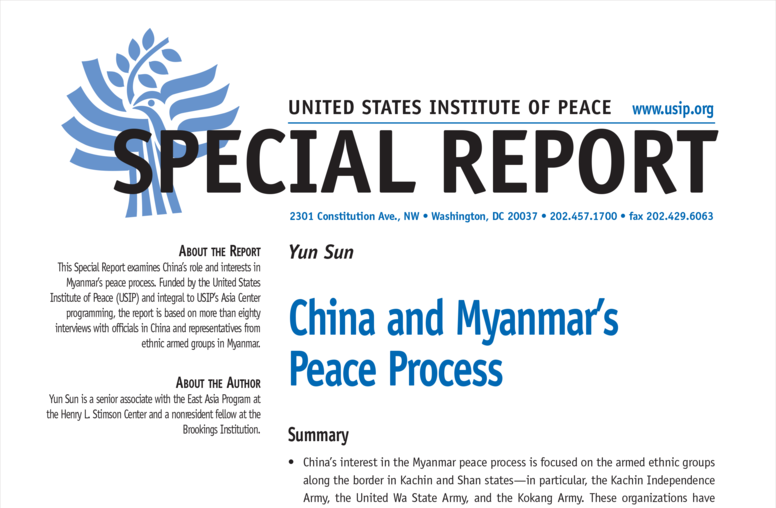
China and Myanmar’s Peace Process
For multiple historical, ethnic, geographic, political, and economic reasons, China has been and will remain an integral player in Myanmar’s internal peace process, particularly regarding the ethnic armed groups in northern Myanmar. Informed by numerous interviews in both China and Myanmar, this Special Report examines China’s positions, policies, and role in that process.
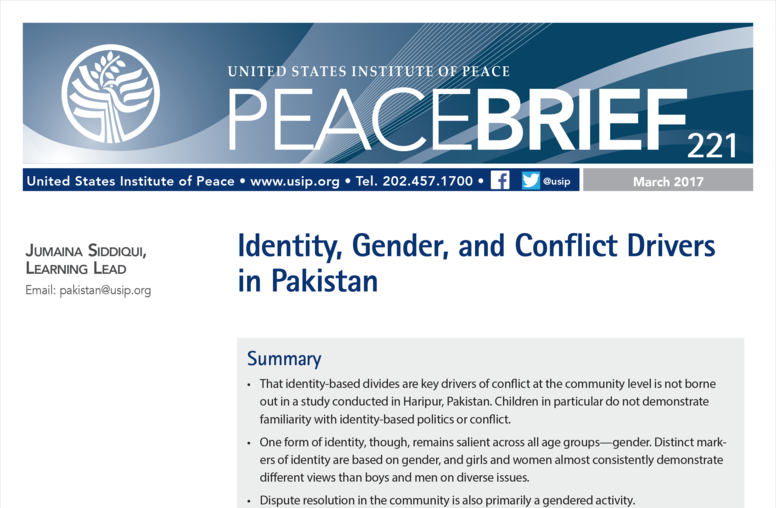
Identity, Gender, and Conflict Drivers in Pakistan
Based on a study conducted in the Pakistani town of Haripur that investigated children’s attitudes toward identity, this Peace Brief finds that identity-based divides are in fact not the primary drivers of conflict at the community level, but notes the continuing salience of gender identity, which produces differing social expectations and differing understandings of conflict resolution roles.
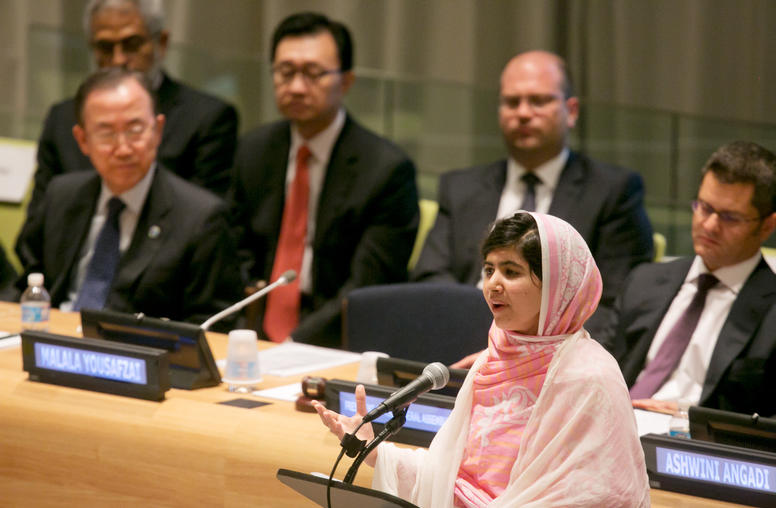
Why International Women’s Day Matters
When Mahatma Gandhi was leader of the Indian National Congress in 1921, he advocated for women’s rights as key to modernizing Indian society. He understood that you cannot change a society peacefully without turning to women, half of the population, to make it happen. In an open letter in 1930, he wrote, “If nonviolence is the law of our being, the future is with women.” It was a radical idea at the time to make women, who usually are invisible, visible. It’s still radical today.
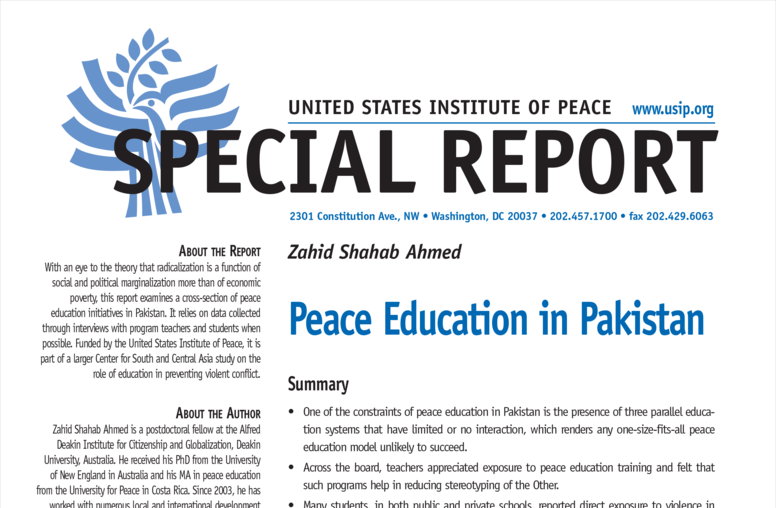
Peace Education in Pakistan
Virtually every country in South Asia faces militancy and conflict to some extent. Pakistan has been especially prone. Peace education addresses the root causes of conflict and is thus a sustainable long-term solution in conflict resolution and prevention efforts. This report examines nine representative peace education initiatives in Pakistan to better understand what types of interventions were most effective, the differences and similarities between peace education programs and curricula in schools and madrassas, and what the peacebuilding field can draw from the selected case studies.
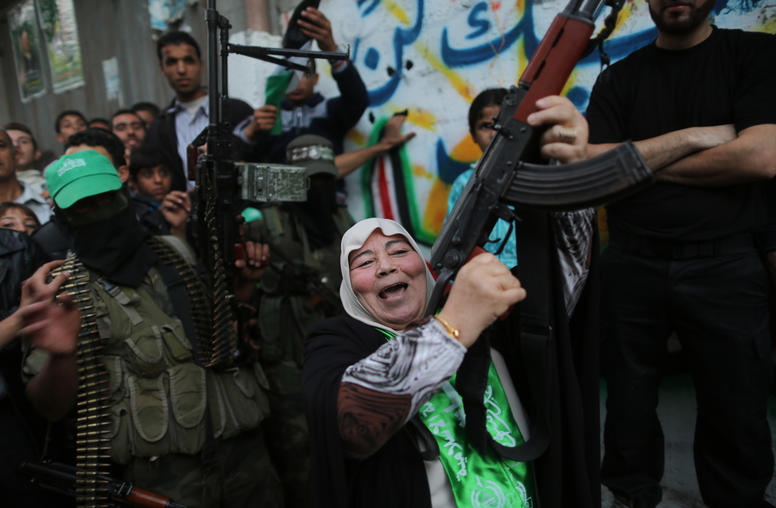
From Nazis to ISIS: Women’s Roles in Violence
From the Nazi regime of the 1940s through the Islamic State of today’s Middle East, an obscured element of history runs though the phenomenon of violent extremism: the participation of women. Contrary to the classic image of women as victims or, at least more recently, peacemakers, new research shows how women can stoke, support and sometimes directly join in violent action, scholars said in a discussion at the U.S. Institute of Peace.
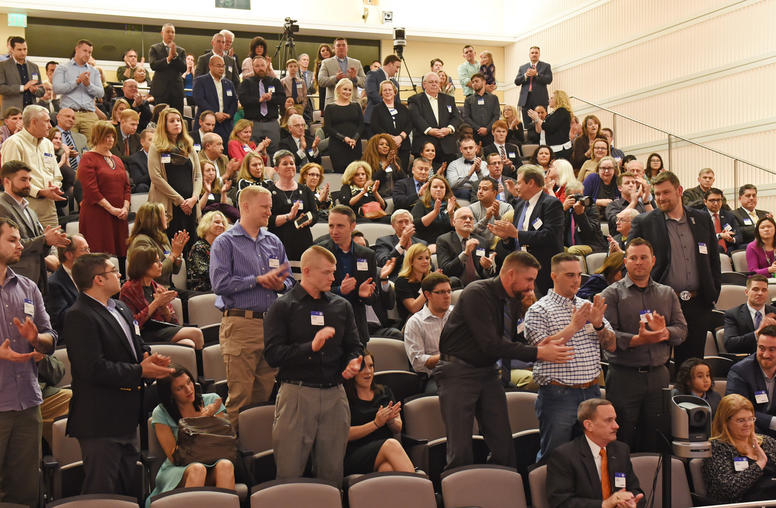
U.S. Afghanistan Veterans Recall the Costs of War
When we estimate the costs of wars, our guesses can render figures too vast and numbing to really grasp. Brown University’s Costs of War project estimates that wars since 2001 involving U.S. forces have cost $4.8 trillion, 370,000 people killed in direct violence and nearly 1.2 million dead when indirect causes are counted. At the U.S. Institute of Peace on Feb. 22, a prominent journalist and U.S. combat veterans focused on a tiny but dramatic subset of costs—the price paid by these former soldiers when they were sent a decade ago to a perilous corner of Afghanistan.
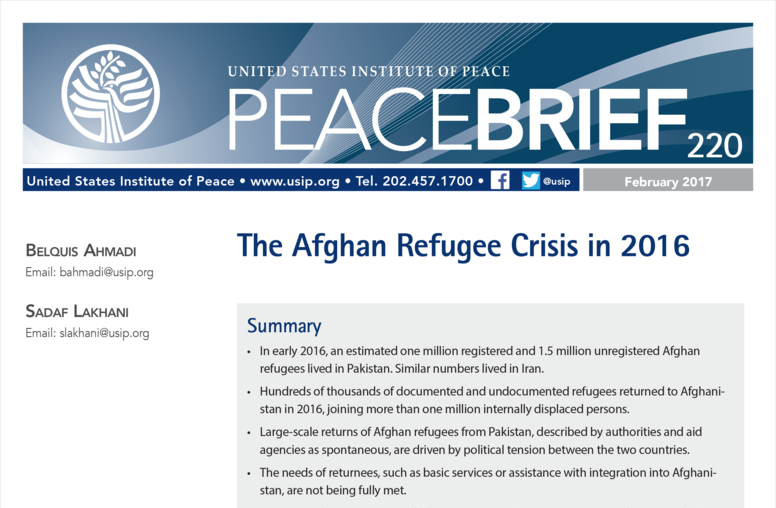
The Afghan Refugee Crisis in 2016
Hundreds of thousands of documented and undocumented refugees returned to Afghanistan in 2016, joining more than one million internally displaced within the country. International agencies warn of a humanitarian crisis that would affect hundreds of thousands of people as returnees struggle to meet basic needs. This Peace Brief provides an overview of the situation at the end of 2016, focusing on those returning from Pakistan, the humanitarian situation, and the security implications of the influx.
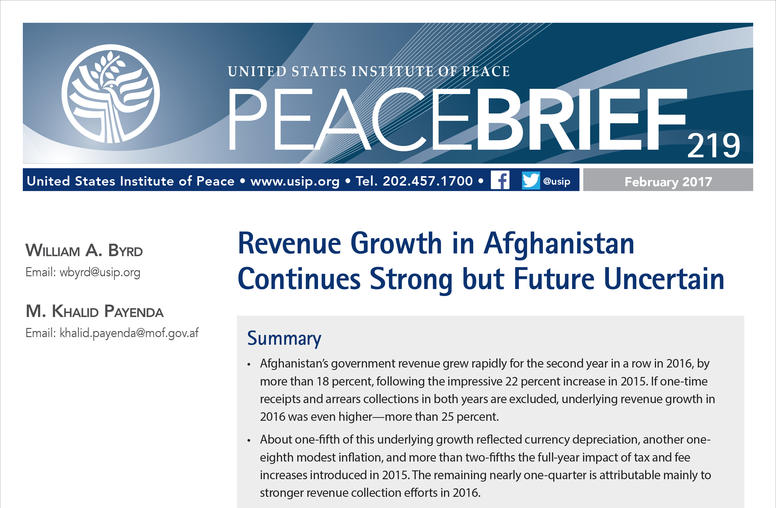
Revenue Growth in Afghanistan Continues Strong but Future Uncertain
This Peace Brief analyzes the main ingredients behind this success. In the end, however, the authors believe that sustained robust revenue growth will hinge on a durable revival of the Afghan economy, which in turn depends on achieving major progress toward peace.